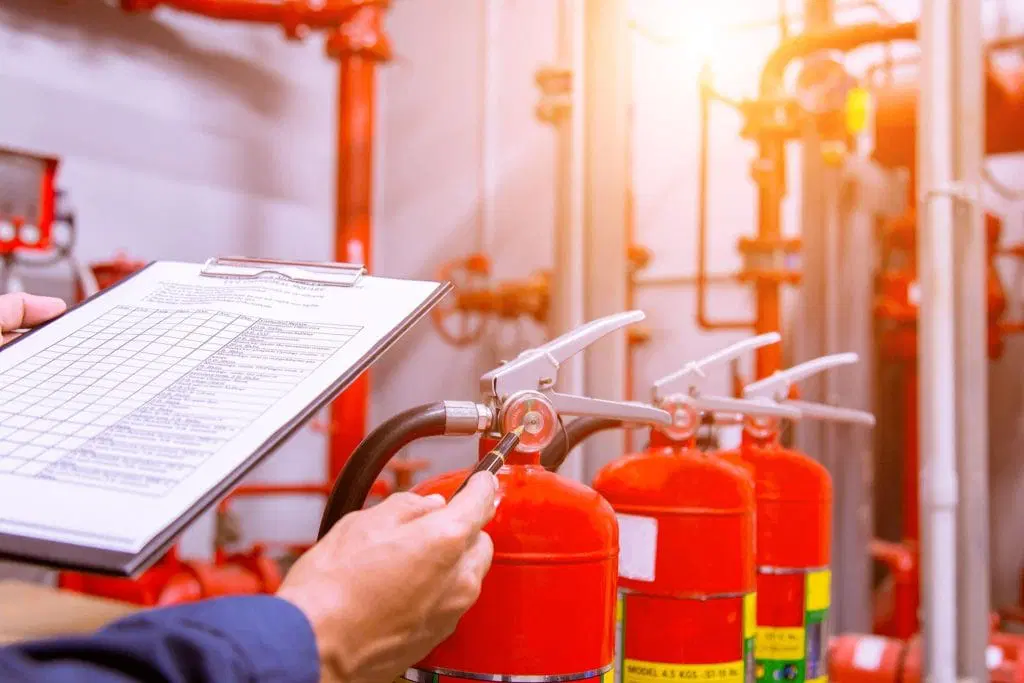Ensuring Workplace Safety with Comprehensive Fire Safety Audit Services
Fire safety is a critical aspect of any business or residential establishment, ensuring the protection of lives, assets, and infrastructure. Fire Safety Audit Services provide a thorough evaluation of fire hazards, compliance with safety regulations, and the effectiveness of existing fire prevention measures. These audits help identify potential risks, recommend corrective actions, and enhance overall fire preparedness. By conducting regular fire safety audits, organizations can improve emergency response plans, ensure compliance with legal standards, and create a safer environment for employees and occupants

Key Components of Fire Safety Audit Services
Risk Assessment:
The audit begins with a detailed risk assessment, where potential fire hazards are identified. This includes evaluating the building’s layout, materials, electrical systems, and any processes or machinery that could pose a fire risk.Compliance Check:
A crucial part of the audit is ensuring the facility complies with local fire safety laws, building codes, and industry-specific regulations. Non-compliance can lead to fines or, worse, compromise the safety of occupants.Fire Safety Equipment Inspection:
Fire extinguishers, fire alarms, sprinklers, and smoke detectors are essential for fire protection. An audit ensures that all equipment is properly installed, regularly maintained, and fully operational in case of an emergency.Evacuation Plan Review:
A well-structured evacuation plan is vital to ensure everyone knows how to exit the building safely in case of fire. The audit assesses the clarity and effectiveness of the evacuation strategy, including exit signs, pathways, and assembly points.Employee Training and Awareness:
Even with the best fire safety equipment, the human element plays a significant role in fire safety. Fire safety audit services often include evaluating the training levels of employees in handling fire emergencies, using fire extinguishers, and following evacuation procedures.Fire Drill Evaluation:
Regular fire drills are essential for ensuring that all employees know their roles during an emergency. Fire safety audits review the frequency, execution, and effectiveness of fire drills, identifying areas for improvement.Fire Safety Documentation:
Proper documentation is essential for tracking inspections, maintenance, training, and safety protocols. The audit ensures that fire safety records are up-to-date and comply with legal requirements.
Benefits of Fire Safety Audit Services
Regular audits help identify potential fire hazards early, allowing for proactive measures to reduce the risk of fire and its impact

Audits help foster a culture of safety within an organization, encouraging employees to be more aware of fire risks and how to prevent them

Many insurance companies offer lower premiums to organizations that have regular fire safety audits, as these audits demonstrate a commitment to minimizing fire risks
Ensuring compliance with fire safety regulations helps prevent costly penalties and legal issues, safeguarding the reputation of the organization

Knowing that a facility is prepared for fire emergencies can provide peace of mind to both business owners and employees, contributing to a safe and secure environment

